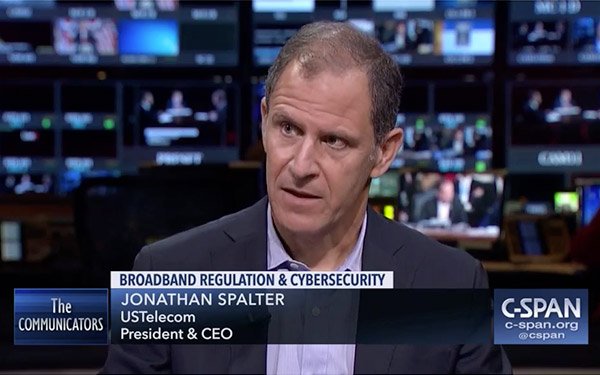
Faced with new privacy rules in Europe and California, the broadband industry lobbying group US Telecom is joining Silicon Valley's Internet Association in advocating for a national privacy
law.
"We believe that it's time for our Congress to take steps, to stand up, and develop our own national framework ... that provides consistent, uniform privacy protections for all consumers,
regardless of where they go on the internet," US Telecom president and CEO Jonathan Spalter says on the newest episode of C-SPAN's "The Communicators."
Spalter added that broadband providers
support a "strong national commitment" to network security, consumer choice, transparency, and appropriate notification in instances of a breach. He didn't elaborate on details such as how consumers
would exercise choice, or what kinds of data breaches should trigger notices.
Earlier this week, the Internet Association endorsed the idea of federal privacy legislation. That
organization proposed that privacy protections should be be consistent online and offline, and "technology neutral."
The organizations' call for legislation comes in response to Europe's
relatively stringent privacy rules, which took effect in May, as well as a new California law. California's law, slated to take effect in 2020, allows consumers to learn what personal information
about them is held by businesses, and to opt out of the sale of that information.
Soon after the measure was passed, a host of companies reportedly began pressing Congress to develop a federal privacy law that would trump individual state
laws.
US Telecom member AT&T recently criticized California's law in comments to the Federal Trade Commission. "Internet communications are by nature geography-agnostic, and providers
cannot feasibly tailor online services to the disparate rules of many different U.S. jurisdictions," the broadband provider wrote.
California's new privacy law doesn't impose different
standards on broadband providers, but the Obama-era Federal Communications Commission passed rules requiring broadband providers to obtain subscribers' explicit consent before mining their online
browsing history for ad targeting. (Congress revoked those regulations
last year.)
Privacy advocates have long argued that broadband providers should be subject to heightened requirements, noting that internet service providers can glean detailed knowledge about
subscribers' online activity by examining all unencrypted traffic that passes through their networks. But broadband providers say they can't effectively compete in online advertising with companies
like Google and Facebook if those companies don't have to follow the same privacy rules.